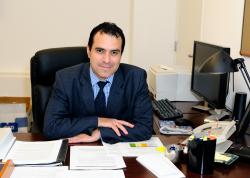

10:00 am EDT - 11:30 am EDT
Past Event
10:00 am - 11:30 am EDT
1775 Massachusetts Ave., NW
Washington, DC
After significant improvements in Colombian security over the past decade, President Juan Manuel Santos has increased focus on social progress, unveiling a series of social and economic changes addressing issues from poverty reduction to land reform. While emphasizing these important reforms, President Santos has also worked to continue the fight against urban crime, the leftist guerrilla group, the Revolutionary Armed Forces of Colombia (FARC), and the criminal networks that have emerged after the demobilization of the paramilitaries. With municipal elections just around the corner, expectations for the Santos administration continue to grow as many in Colombia wonder if the positive changes achieved will continue or if additional security and social challenges will once again overwhelm the state’s capacity.
On October 21, the Latin America Initiative at Brookings hosted a discussion on the current achievements and challenges ahead for the Santos administration. Panelists included Brookings Fellow Vanda Felbab-Brown; Adam Isacson, director of the Regional Security Policy program in the Washington Office on Latin America; Virginia Bouvier, senior program officer at the United States Institute of Peace; and Claudia López, a prominent Colombian journalist now at Northwestern University. Senior Fellow Kevin Casas-Zamora, interim director of the Latin American Initiative at Brookings, provided introductory remarks and moderated the discussion.
After the program, the panelists took questions from the audience.



Barry G. Rabe
September 19, 2024

Kelebogile Zvobgo
September 18, 2024

Ian Berlin, William G. Gale
September 17, 2024